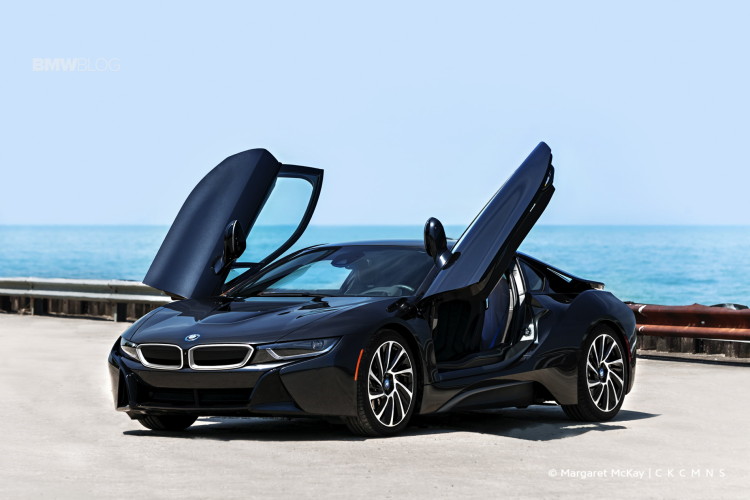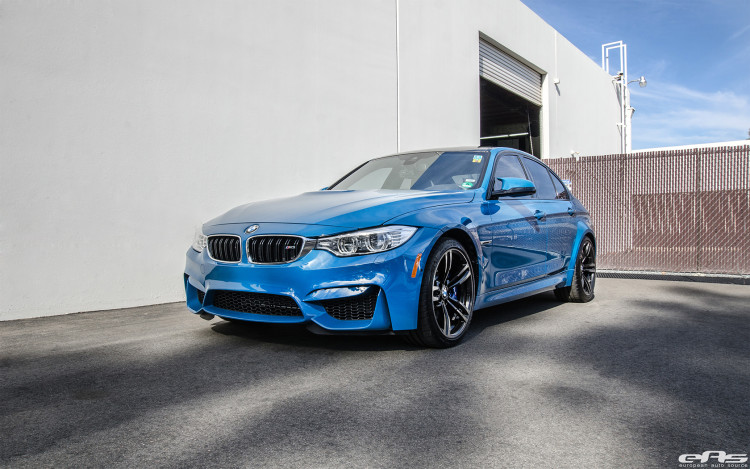We all know that automakers are in a bit of a struggle to keep emissions down and fuel economy up, as government regulations across the globe are getting stricter every day. The polar bears are losing their homes and it seems as if the blame falls solely on the gas-sucking automobile, if you listen to Prius drivers. So BMW, as well as many other automakers, has been working incredibly hard to do its part as an environmentally conscious company by planning to create plug-in hybrid variants of every model in its lineup. And it’s very possible that the this plan could make its way to the famous M Division.
If this were to happen, and a BMW M3 or M4 were to become hybridized, the M faithful would be up in arms. BMW M fans would rebel against the blue and white for creating such a heretical vehicle. This is obvious, though, as BMW purists have always rebelled against any sort of change for the M3. As it got heavier with every iteration since the E30, fans groaned. When it gained a V8, with the E90/E92 M3, purists bemoaned its lack of inline-six and extra heft. Now fans miss the E46 and the E9x’s glorious 4.0 liter V8. When the F80 BMW M3 debuted, fans were up in arms about the M3’s new turbocharged nature. However, if BMW were to go hybrid with the next M3, fans would reminisce about the F80’s turbocharged engine and its “purity”.
But would any hate for a hybrid M3 actually be warranted? Or should the idea of a hybrid M3 be embraced?
Well, it’s actually quite an interesting idea, having a hybrid BMW M3, with some good points on either side of the argument. One one hand, the BMW M3 is a sort of purists car, something that prioritizes fun, feel and handling dynamics above all things. So the idea of adding an electric motor and big, heavy batteries is something that will deeply bother many BMW fans. Being that batteries and electric motors are so heavy, they could cause something as dynamic as an M3 to become a bit sloppier in the twisty stuff. Also, the idea of features like an EV mode and regenerative braking in an M3 is not a very enticing one.

However, there is a flip side to the argument. And that flip side is actually a car in BMW’s current stable — the BMW i8. The i8 proves that hybrid sports cars can still be incredibly fun, if done properly. While batteries are very heavy, BMW can offset that weight by using carbon fiber construction, as it does on the i8 which only weighs 3,400 lbs, making the i8 even lighter than the current BMW M3. So BMW could develop a hybrid M3 to not have a weight penalty because of the hybrid powertrain.
Then there’s the power and performance gains from a hybrid powertrain. Electric motors provide power and torque instantaneously, which massively benefits turbocharged engines. As the turbos wait to fully spool, there’s always a bit of turbo lag, even if it’s minute. An electric motor’s instant torque completely eliminates that lag, giving turbocharged engines a more linear powerband and sharper throttle response. The BMW i8 has an uncanny ability to rocket out of corners faster than most sports cars, despite its three-cylinder engine, thanks to its low-range torque.
The idea of a BMW M3 being able to do such a thing is actually quite enticing. Imagine a BMW M3 with a carbon fiber passenger cell, like the i8’s, and an electric motor mated to a turbocharged inline-six engine. That’s a scary thought for competitors like the Cadillac ATS-V and Mercedes-AMG C63 S. If BMW could use the hybrid powertrain mostly for performance and not so much economy, similar to the way McLaren uses it for the P1, BMW would have the sports car of the future on its hands. Would it piss off the purists? Of course, but as history would tell us, they’re gonna be pissed either way.
[Source: BMWCCA]






































































